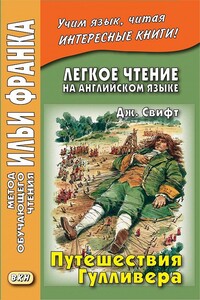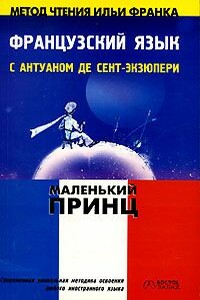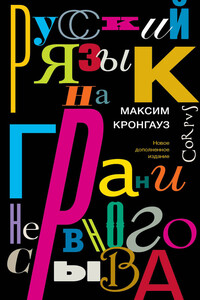Английский язык с Льюисом Кэрроллом - Приключения Алисы в Стране Чудес | страница 11
knelt [nelt], loveliest ['lAvlIIst], fountain ['faVntIn], shoulder ['SqVldq]
Alice opened the door and found that it led into a small passage, not much larger than a rat-hole: she knelt down and looked along the passage into the loveliest garden you ever saw. How she longed to get out of that dark hall, and wander about among those beds of bright flowers and those cool fountains, but she could not even get her head though the doorway; 'and even if my head would go through,' thought poor Alice, 'it would be of very little use without my shoulders. Oh, how I wish I could shut up like a telescope! I think I could, if I only know how to begin.' For, you see, so many out-of-the-way things had happened lately, that Alice had begun to think that very few things indeed were really impossible.
There seemed to be no use in waiting by the little door (казалось, что не было никакого толка в ожидании у маленькой двери), so she went back to the table (поэтому она = Алиса вернулась к столику), half hoping she might find another key on it (почти надеясь, что она сможет найти на нем еще один ключ), or at any rate a book of rules for shutting people up like telescopes (или, по крайней мере, книжку с правилами по складыванию людей наподобие подзорной трубы): this time she found a little bottle on it (на этот раз она нашла на нем маленькую бутылочку), ('which certainly was not here before (которой раньше здесь точно не было),' said Alice,) and round the neck of the bottle was a paper label (вокруг горлышка бутылки была /прикреплена/ бумажная бирка; neck — шея; горлышко /бутылки и т. п./), with the words 'DRINK ME' beautifully printed on it in large letters (со словами "ВЫПЕЙ МЕНЯ", красиво выведенными на ней крупными буквами; to print — печатать; писать печатными буквами).
half [hQ:f], find [faInd], certainly ['sE:tnlI], beautifully ['bjHtIflI]
There seemed to be no use in waiting by the little door, so she went back to the table, half hoping she might find another key on it, or at any rate a book of rules for shutting people up like telescopes: this time she found a little bottle on it, ('which certainly was not here before,' said Alice,) and round the neck of the bottle was a paper label, with the words 'DRINK ME' beautifully printed on it in large letters.
It was all very well to say 'Drink me (легко было сказать "выпей меня"),' but the wise little Alice was not going to do that in a hurry (но разумная маленькая Алиса не собиралась делать этого второпях; wise — мудрый; благоразумный, здравомыслящий). 'No, I'll look first (нет, я сначала посмотрю),' she said, 'and see whether it's marked "poison" or not (что бы убедиться, есть ли на ней пометка "яд" или нет'; to see — видеть; понимать, сознавать); for she had read several nice little histories about children who had got burnt (потому что она прочла несколько милых рассказов о детях, которые обжигались: «становились обожжены»; to burn — гореть; обжигать), and eaten up by wild beasts (или были съедены дикими зверьми) and other unpleasant things (или /с которыми произошли/ другие неприятные события), all because they would not remember the simple rules their friends had taught them (и все потому, что они не желали помнить простые правила, которым научили их друзья; to teach): such as, that a red-hot poker will burn you if you hold it too long (такие, например: раскаленная докрасна кочерга /непременно/ обожжет, если держать ее слишком долго; hot — горячий; накаленный); and that if you cut your finger very deeply with a knife, it usually bleeds (и, что если резануть по пальцу ножом очень глубоко, то из него обычно течет кровь; blood — кровь; to bleed — кровоточить, истекать кровью); and she had never forgotten that, if you drink much from a bottle marked 'poison' (и она никогда не забывала того, что если много выпить из бутылки с надписью "яд"), it is almost certain to disagree with you, sooner or later (то, рано или поздно, это почти наверняка вызовет недомогание; to agree — соглашаться; быть полезным, приятным; to disagree — расходиться, не соответствовать; быть вредным, оказывать плохое действие).





